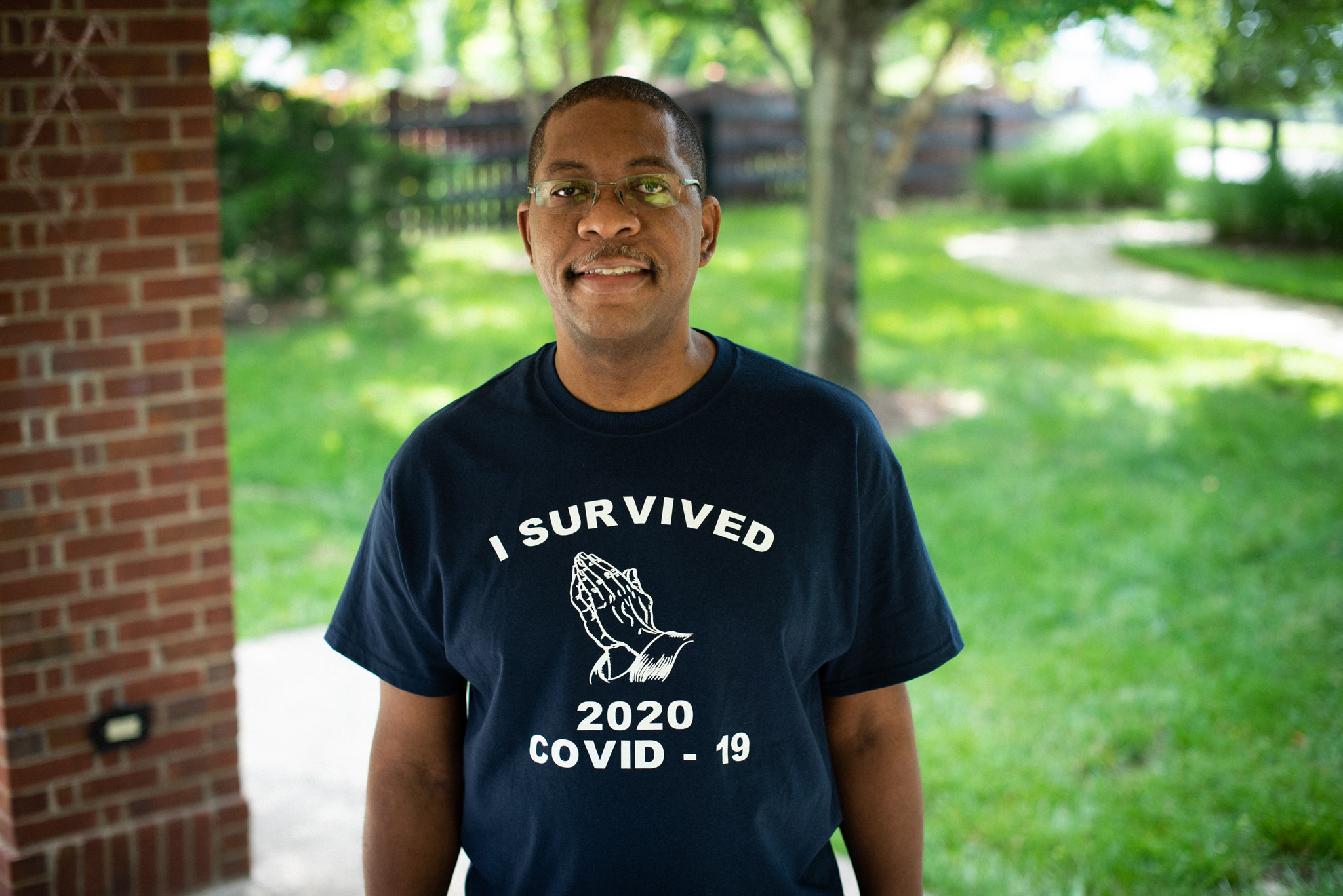
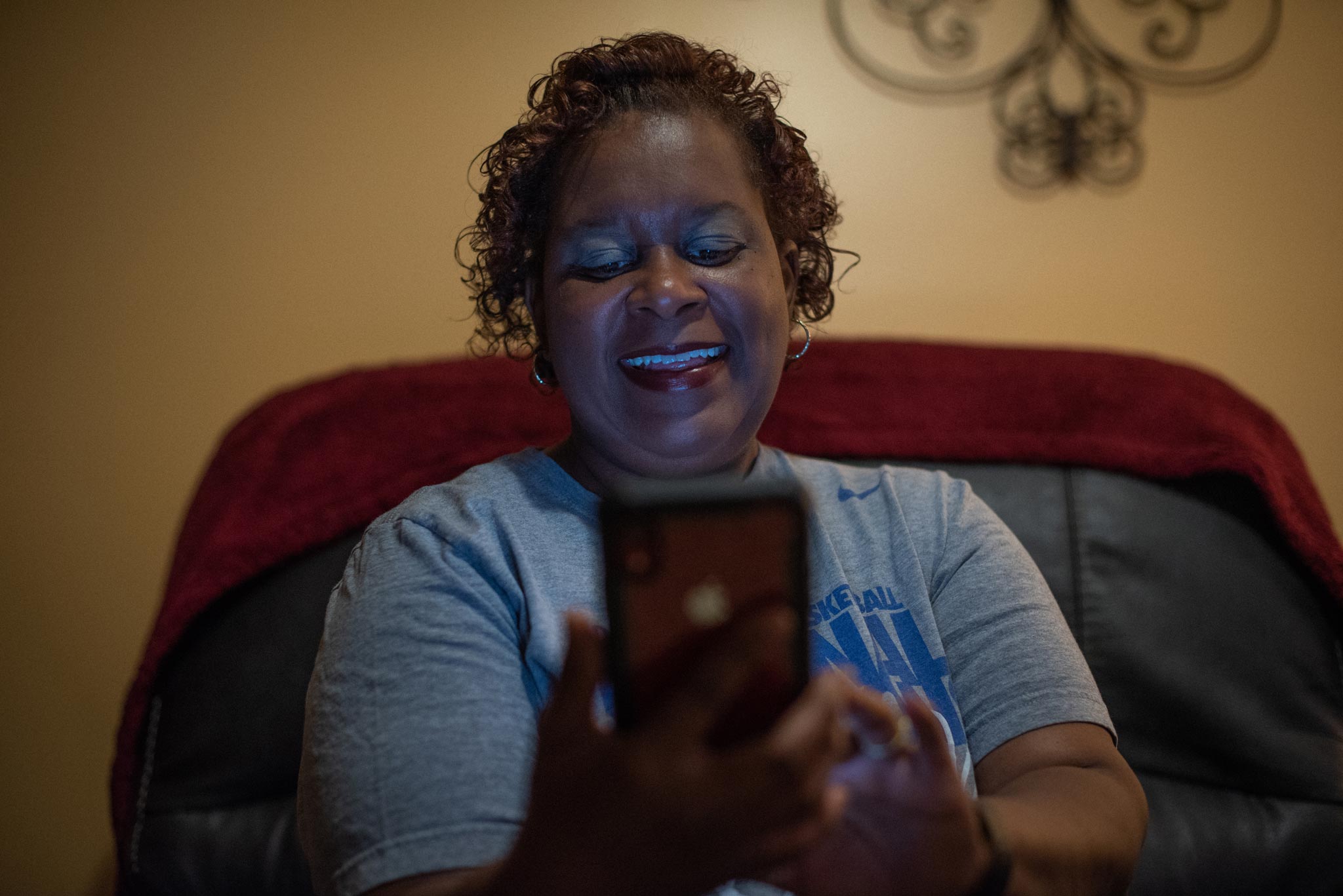
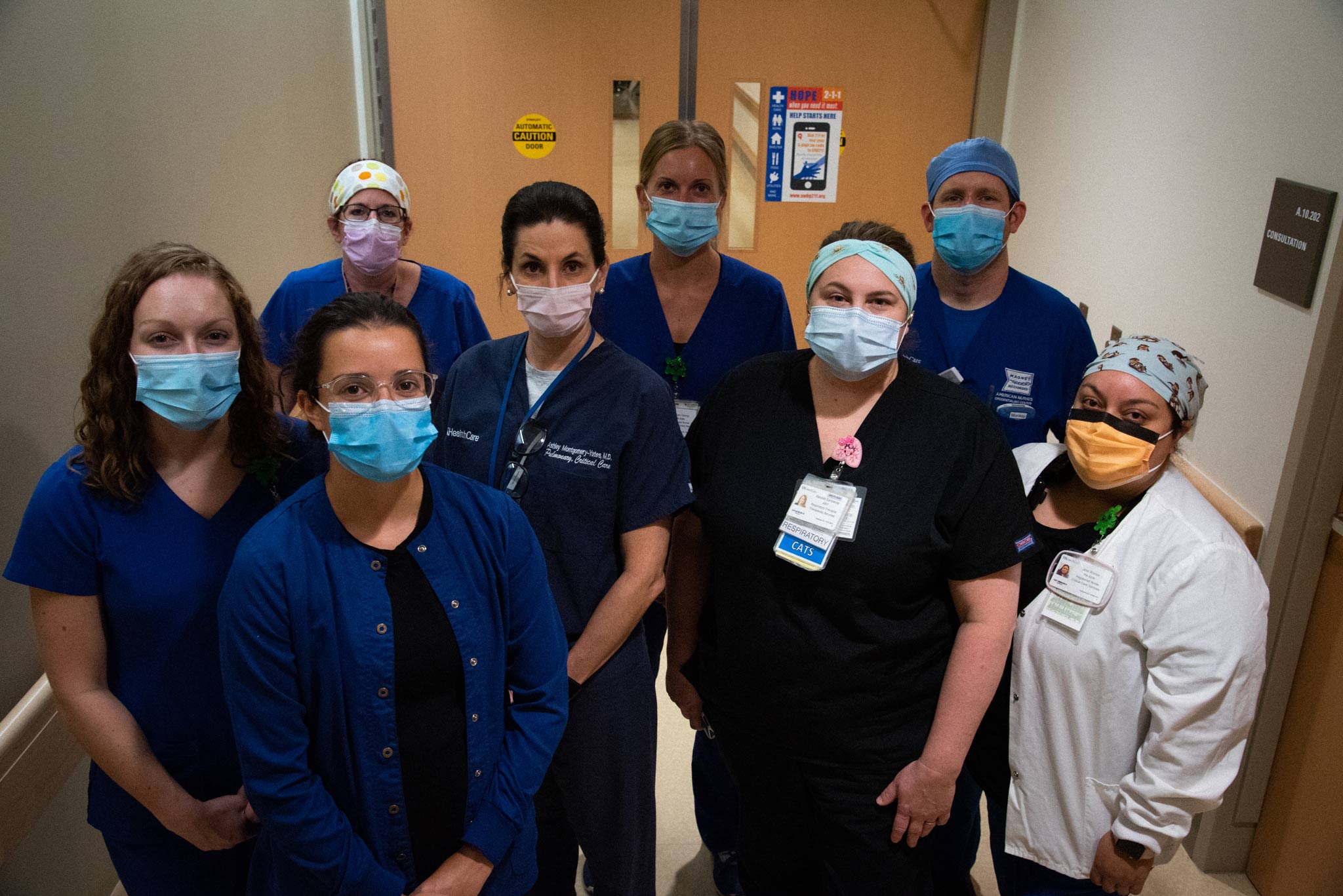
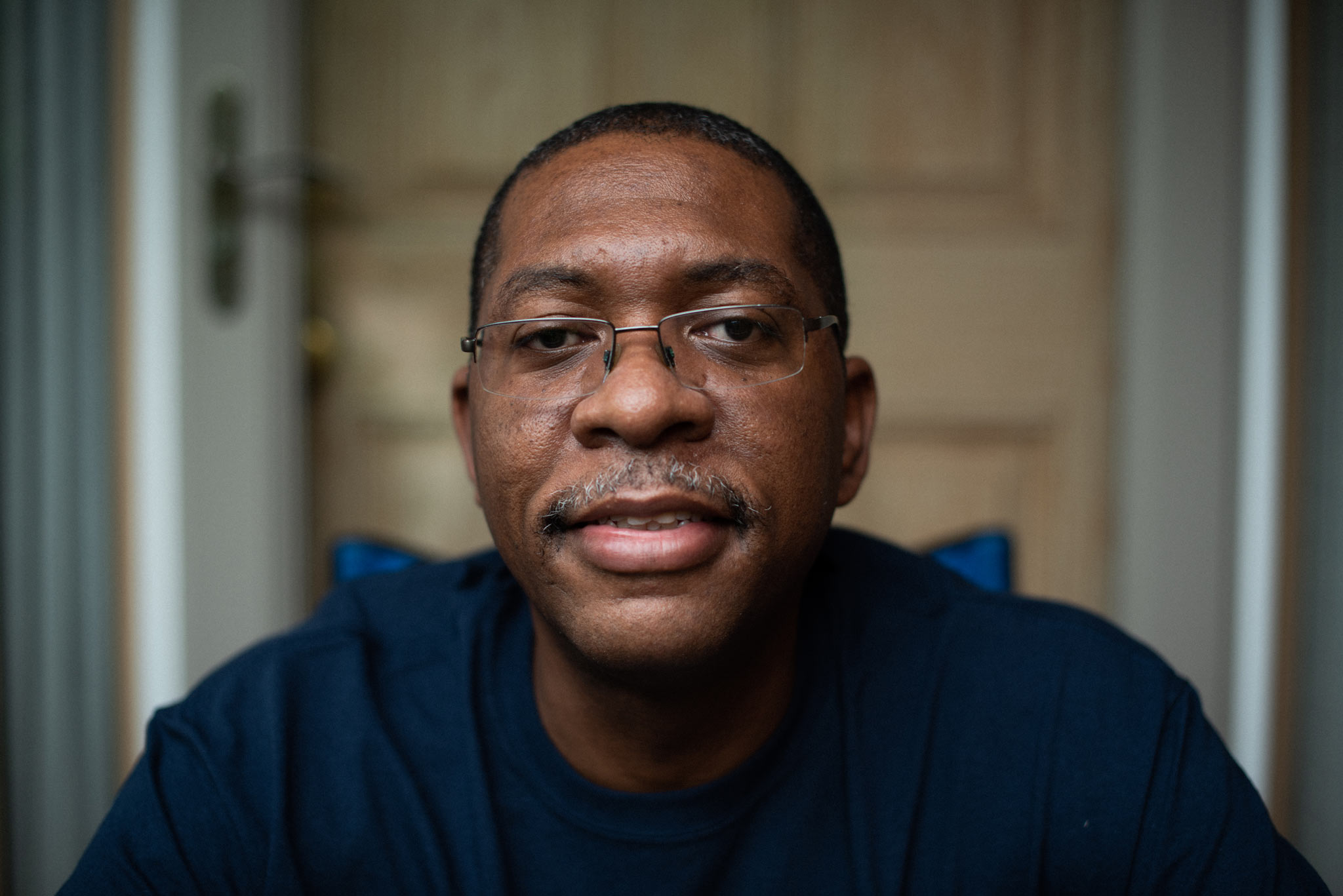

"This coronavirus has no name, no age and no color."
On April 3rd, Jerome Johnson collapsed in his bathroom. His wife, Jeanine, immediately rushed him to UK HealthCare’s Chandler Emergency Department. Jerome had previously thought his illness was a yearly sinus infection, but his health deteriorated so rapidly that it was evident something much worse was happening.
Every family’s worst fear throughout the global coronavirus pandemic had been confirmed for the Johnson family: Jerome had COVID-19. He was taken into the ICU immediately and kept on high levels of oxygen while being heavily sedated. Jerome’s condition worsened quickly, and he was placed on a ventilator for nearly two weeks.
The only form of communication that allowed Jerome and his family to see and hear each other was UK HealthCare’s eICU system--an in-room video monitor and camera. Originally designed to allow clinicians to monitor patients remotely, UK HealthCare’s COVID team found a way to patch families into the eICU system, allowing them to see their loved ones while they were in isolation. Jeanine and their two children, Jorden and Jeanieca, spent hours talking to Jerome and lifting his spirits during the most harrowing days of his stay.
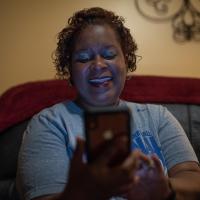
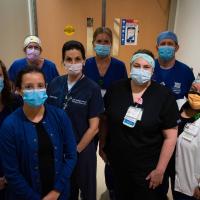

“It's very common for people who've been heavily sedated and on a ventilator to get ICU delirium,” said Lauren Bridges, one of Jerome’s nurses. “They're very confused because they went to sleep and missed however many days, weeks of their life—then wake back up and everything's different. When you have strangers telling you, ‘This is what happened. This is what's going on,’ it’s really hard to put the pieces back together. You need something that's a constant in your life. And so seeing Jeanine, I think, really helped Jerome. The calls seemed to really, really help him clear things up.”
Jerome battled COVID-19 for almost a month in the ICU, with his nurses and the eICU system giving his family daily updates on his condition. COVID care at UK HealthCare is a team effort, with dozens of doctors, nurses, respiratory therapists, techs, environmental services staff and more coming together to protect and care for patients fighting for their lives.
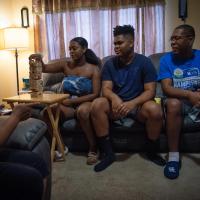
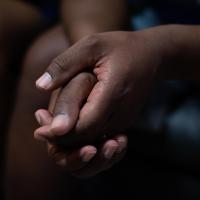

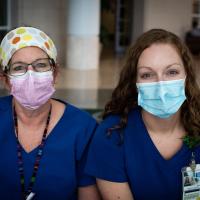
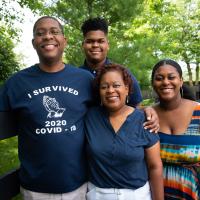
“The way they came in, their professionalism towards me, their attentiveness towards me when I needed something was great,” Jerome said. “They attended to me very well, and very quickly. Just the way they came to me, took care of me, and attended to my every need. I mean, even down to the littlest things. It's going to stick with me for the rest of my life.”
“When we took the tube out, the first thing he did was grabbed me and just hugged me,” said Betsy Anderson, another one of Jerome’s nurses. “I just hugged him back so tight. I knew that when I walked out of the room, I was going to have to go and change my scrubs and everything else, but that hug was so worth it. He was just so happy.”
After nearly a month in the COVID unit, Jerome was finally able to return home to his family—leaving the hospital under his own power, without any supplemental oxygen. It was a moment of pride for himself, and the team that cared for him. “I came home, and I hadn’t really seen the sun. I stood out there in the sun for a few minutes, just thanking God. It was just great to get out, and be around my kids and my wife again.”
Jerome’s sixteen-year-old daughter, Jeanieca, has a message about the risk of COVID-19 after watching her dad fight it. “This coronavirus has no name, no age and no color. So many more people are getting it from all different age groups.”




